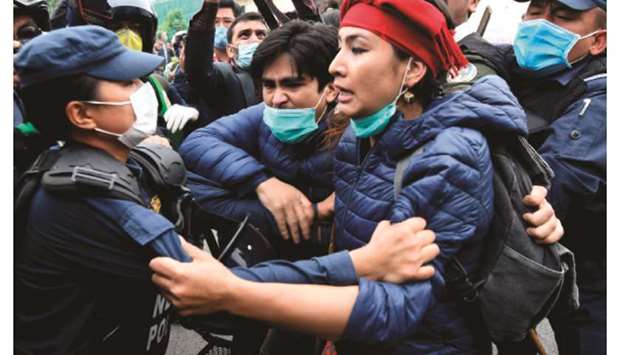Nepal’s foreign minister summoned India’s ambassador yesterday over a new road being built through disputed territory as police arrested protesters who burnt effigies of the leaders of both countries.
Anger has been mounting since India on Friday inaugurated an 80km (50 mile) road in Uttarakhand state leading up to the Lipu Lekh pass, high in the Himalayas.
Nepal claims the pass under an 1816 treaty that sets their borders.
Scores of demonstrators defied a coronavirus lockdown to burn effigies of India’s Prime Minister Narendra Modi and his Nepali counterpart, K P Sharma Oli, at several protests in Kathmandu.
Protesters say the government has not done enough to counter the Indian project.
Police said at least 30 people were detained.
Foreign Minister Pradeep Gyawali summoned Indian ambassador Vinay Mohan Kwatra to hand over a protest note over the road, foreign ministry spokesman Bharat Raj Poudyal said.
Nepal on Saturday condemned India’s “unilateral act” that “runs against the understanding reached between the two countries... that a solution to boundary issues would be sought through negotiations.”
In response, an Indian foreign ministry spokesman said the contested road “lies completely within the territory of India”.
Nepal has a series of boundary niggles with its giant neighbours, India and China.
Nepal protested to both in 2015 when they issued a statement listing the Lipu Lekh pass as a bilateral trade route.
Kathmandu also claims the Kalapani region, which adjoins Lipu Lekh, although Indian troops have been deployed there since India and China fought a border war in 1962.
Last year India published a map that showed Kalapani within its borders, a move
protested by Nepal.

Police detain demonstrators during a protest against India’s newly inaugurated link road to the Chinese border, in Kathmandu yesterday.
